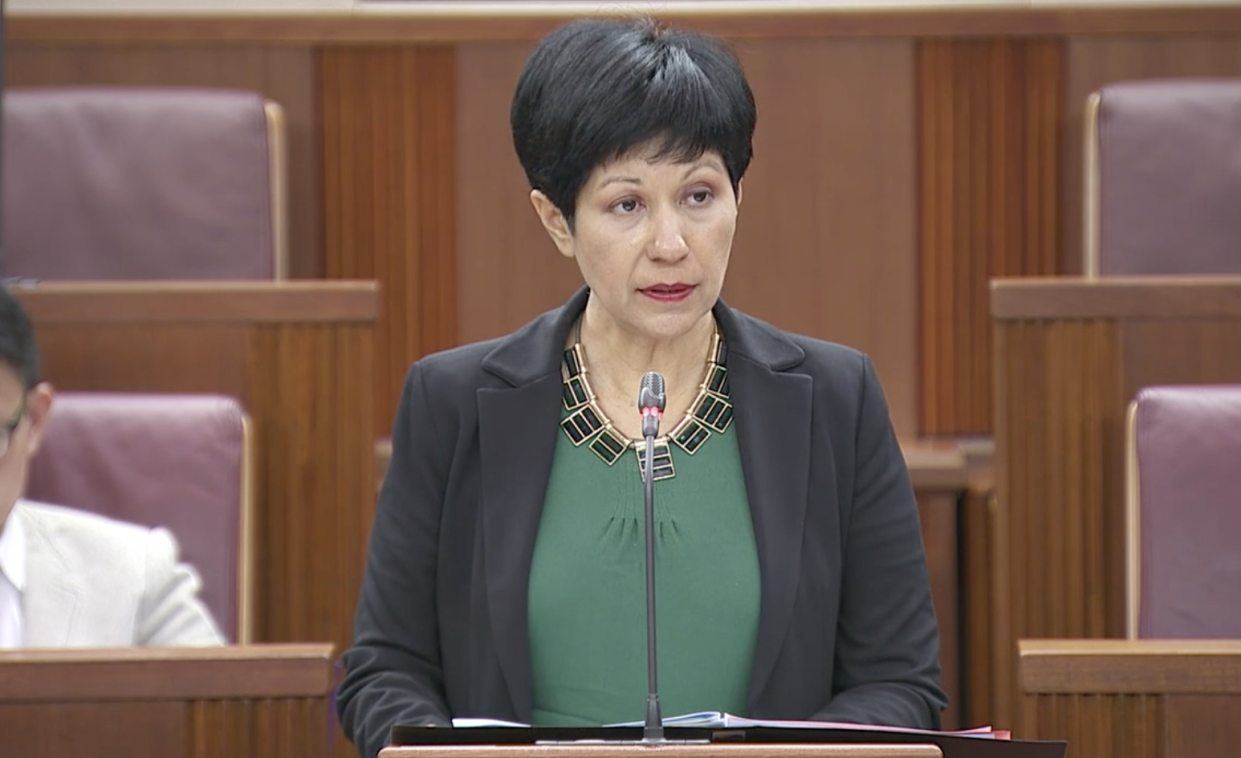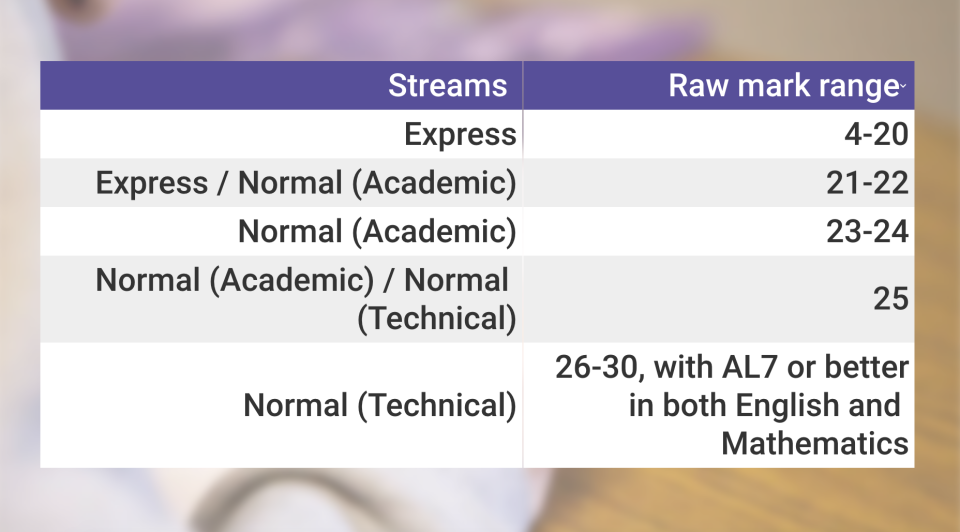Students exempted from mother tongue language will be treated fairly under new PSLE system: Indranee

SINGAPORE — Students who are exempted from taking a mother tongue language at the Primary School Leaving Examination (PSLE) level and affected by the new grading system taking effect from 2021 will be treated fairly, said Second Minister for Education and Finance Indranee Rajah on Monday (2 September).
About 4.5 per cent of primary school students - about 1,800 students out of an estimated yearly cohort of 40,000 - are exempted from taking up a mother tongue language each year.
Of this, Yahoo News Singapore understands that about 1,200, or three per cent of the cohort, comprise those with special educational needs as well as students who have been away from Singapore for prolonged periods of time. The remaining take up a third language, such as French, German and Japanese, in lieu of a mother tongue language.
Under the exemption, these students will sit and receive PSLE examination scores for three subjects: English, Mathematics and Science.
For their postings to secondary schools under the current T-score system, they are separately assigned a mother tongue language score referenced from others who take the subject with similar English, Maths and Science results, including those taking it at Foundation Level.
“This basic approach will not change when we move from the T-score system to the new Achievement Level (or AL) scoring system in 2021,” said Indranee, who was speaking in Parliament in response to questions raised by several Members of Parliament (MPs): Jalan Besar GRC MP Denise Phua, Bukit Batok SMC MP Murali Pillai and Jurong GRC MP Rahayu Mahzam.
Under the new AL scoring system, these students will be assigned a mother tongue language score ranging from AL6 to AL8, identical to the bands for Foundation level subjects.
Indranee noted that about 70 per cent of students with special educational needs in mainstream schools take a mother tongue language for their PSLE, where four in 10 among them take it at the Foundation Level.
“As the score range for those taking Foundation mother tongue language is AL6 to AL8, it would be difficult to justify to those offering it why another student who did not sit for the exam could be assigned a higher score,” she explained.
For parents who are concerned about their children who do very well in the three subjects, for instance, getting grades of AL1, but get the highest possible score of AL6 for their exempted mother tongue language, Indranee assured that they are well within eligibility for the Express stream, which requires a total score below 20.


Balance needed regarding exemption issue
In response to a question tabled by Phua, who is also the president of the Autism Resource Centre and co-founder of special education school Pathlight, on the underlying principles behind the approach, Indranee noted that while the new system is a move away from the current system where a student has to “outperform his peers”, a PSLE score is still necessary for a student to “compete with others” to be admitted into a school of his choice.
“Our treatment of students exempted from mother tongue language is aligned with these principles. For purposes of deriving AL scores, he was exempted from mother tongue language, so no assessment of his standards took place and he has no score,” Indranee explained.
“But for purposes of secondary school posting, he needs to be compared with other applicants and so we will assign him a mother tongue language score by referencing his peers,” she added.
She explained that if the exemption was “applied very strictly”, the score for students exempted from a mother tongue language would be zero. “And we didn't want to do that. To be fair, we have to impute or assign a score,” she added.
Indranee also stressed that while “a balance between competition among students and self-mastery” can and must be achieved, she noted that “realistically we cannot remove competition totally, and it is also not a reflection of the real life we are preparing students for”.
On Phua’s question about the implications of the new scoring system on course eligibility and school choices, she noted that outcomes are “similar” under both current T-score system and the new AL scoring system.

“Our simulations using the most recent PSLE results show that a similar proportion of students with special educational needs and are exempted from mother tongue language would qualify for the Express course under both scoring systems,” Indranee said. The Express and Normal streams will be phased out by 2024.
“In terms of school choices, if we held choice patterns constant, about 60 per cent of them would secure their first choice secondary school, under both scoring systems.”
The Ministry of Education (MOE) and schools will further support existing mother tongue language-exempt students affected by the new scoring system by providing advice on their school choices, and to also explore Direct School Admission (DSA) exercise as an option, she added.
Under the DSA, students can seek admission to Secondary 1 based on their talents and achievements.
Indranee noted, “Most schools can now admit 20 per cent of their Secondary One intake via DSA, up from 10 per cent in 2017, and many schools have yet to reach this proportion.”
Not ‘feasible’ to tweak system to accommodate small group
On whether the implementation of the new scoring system can be delayed or that an alternative PSLE scoring system for special educational needs students can be considered, Indranee explained that it would not be “feasible”.
“Given that we are changing the national exam scoring system, it would not be feasible for a small group to remain under the T-score system or use an aggregate score of three scores, as their scores would not be comparable with the aggregate scores of other students for purposes of secondary school posting,” she said.
She added, “Ultimately in grading, scores have to reflect standards, instead of effort or circumstances. They are relevant factors, but we should exercise those judgement during admission mechanisms like the DSA, instead of compromising the consistency and integrity of the assessment and grading system.”
The fundamental aim is to have an education system with multiple pathways and opportunities for school children to maximise their future potential, Indranee stressed.
She also urged parents to work with the teachers to consider the best option for their children.
“And especially for children with special educational needs - that the MOE will certainly not compromise on because we want to make sure that whichever part they take, they have good opportunities in order to be able to achieve the aspirations,” said Indranee.
Related stories:
COMMENT: Revised PSLE scoring system - why the need to change, and will things change?
Budget 2019 debate: Subject-Based Banding to replace streaming in secondary schools by 2024
Pathlight to run 2nd permanent campus in Tampines in early 2023, launches cafe at Ang Mo Kio campus


